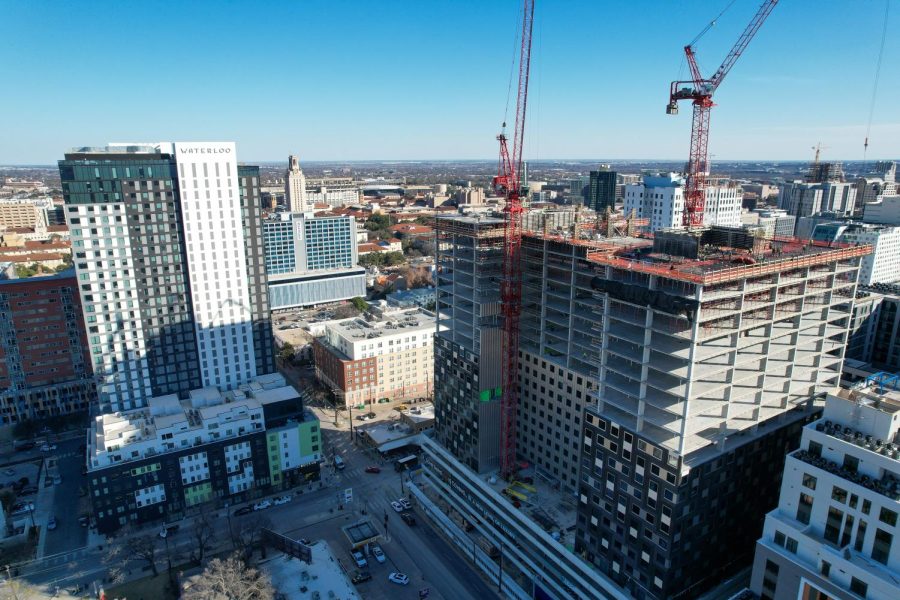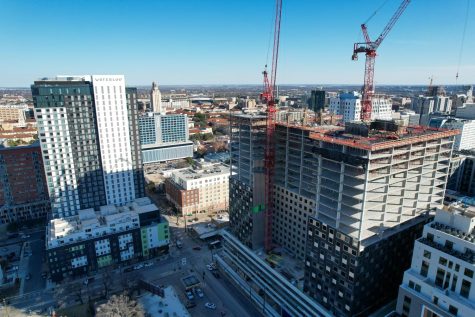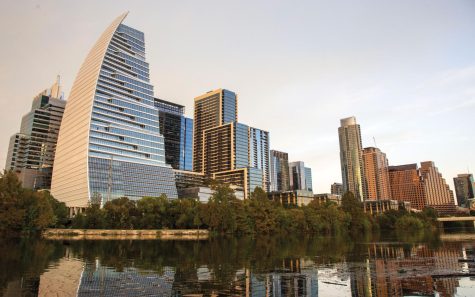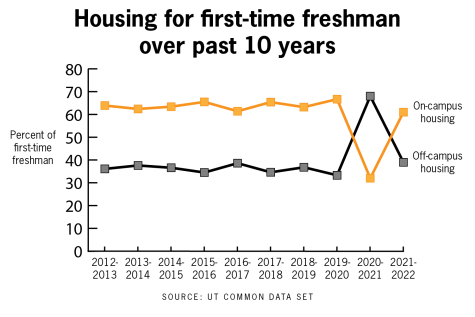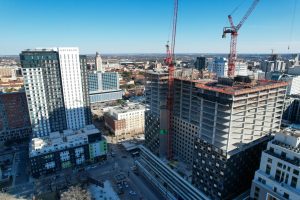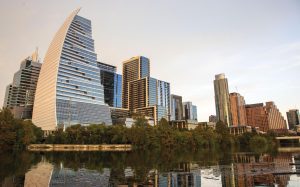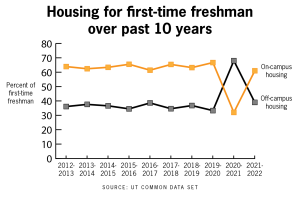Student report highlights unaffordable housing issues around campus
March 3, 2023
A report published by Students for Revolution last month analyzes how rising housing costs have negatively impacted working class UT students, revealing the unique challenges students face in securing their living situations.
The organization conducted the survey to better understand the extent to which Austin’s housing market conditions affect students’ ability to secure quality and affordable housing and how UT has addressed the issue. Nearly 300 people responded to the survey with their experiences.
“We had gone into the survey with an understanding that maybe UT hasn’t really done much to help working class students and employees,” said Evan Scope Crafts, a Students for Revolution steering member. “While there are some subsidies for off-campus housing, I think a lot of us were already aware of the limited extent to which they really help UT students.”
Of the student respondents who live off campus, most reported paying between $1,333 and $1,666 in rent per month. The report also found students who cannot afford housing close to campus end up looking for locations farther away. These students reported dealing with issues like longer commute times, expensive parking and unreliable public transportation.
“One through line throughout our results was that financially insecure students live in a very different world from financially secure students,” said Scope Crafts, a computational science, engineering and mathematics doctoral student. “When you look at the quality of housing and distance to campus, all of those measures are worse for financially disadvantaged students.”
Sociology freshman Daniel Lau, who lives on campus this year, said he is struggling to find affordable off-campus housing nearby.
“The availability for affordable housing is really low and it’s not getting (better) any time soon because there is no money going into (it),” Lau said. “There’s not really much availability unless you want to be driving for an hour or half an hour, even public transportation is like an hour (commute).”
Scope Crafts said unaffordable access perpetuates long-lasting systemic inequalities that date back to segregated dorms at the University.
“You really start to understand how the marketization of housing at UT essentially contributes to a long legacy of using housing to restrict access to UT from groups that don’t fit into this model image of what a UT student looks like,” Scope Crafts said.
UT has the second largest endowment of any university in the U.S., valued at $42.3 billion. Students for Revolution member Aerin Fajardo said they would like UT to spend more of that money on housing efforts.
“UT diplomatically has a lot of power (socially and politically),” sociology freshman Fajardo said. “They could push for companies to start building more housing here (keeping) in mind that students are the main consumers.”
Students for Revolution’s report states the organization’s hope UT will begin to create a “truly equitable, healthy environment to educate its constituents,” including better housing. In the meantime, Fajardo said Students for Revolution hopes to help by sharing knowledge on the issue with students.
“This has been a very long-standing, deeply ingrained issue in UT culture,” Fajardo said. “The biggest thing that we want to work on moving forward is advocacy and spreading awareness.”

